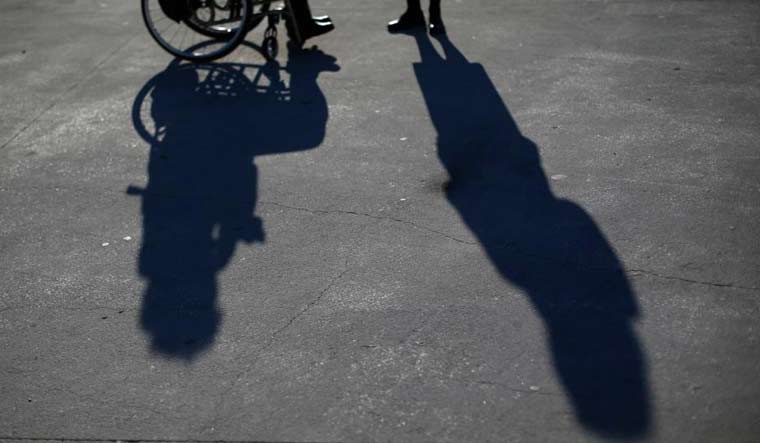The hard battle against the coronavirus pandemic continues even as India reported over 7.5 million cases and 1 million plus deaths as of October. Over the months, the Central and state governments have undertaken several measures to mitigate the transmission of COVID-19 and minimize the significant social and economic cost of this crisis. This pandemic has brought to the fore a ‘new normal’ which many of us are still struggling to cope with―masks, social distancing, work from home, online education, among others.
Health experts across the world have emphasized on physical and mental health being key to resilience during this pandemic. However, in reality, COVID-19 has exposed the vulnerabilities of several communities and put them at high risk in the current situation. It has undoubtedly had a disproportionate impact on the differently-abled persons in India. As per the census of 2011, India has over 26 million differently-abled citizens, that is, 2.2 per cent of the Indian population. This segment of our population has struggled for suitable infrastructure, care and support from the government and society even when things were normal, so one can only imagine their battles linked to the pandemic response such as institutional barriers, societal limitations and behavioural changes.
According to a recent study of 1,000 plus differently-abled people by the National Centre for Promotion of Employment for Disabled People (NCPEDP), 73 per cent of the respondents were faced with severe hardships and challenges during the pandemic, 57 per cent faced financial crisis, 13 per cent faced challenges in accessing basic food and 9 per cent faced obstacles in access to healthcare. This, in a way, validates most of our assumptions on the impact of this pandemic on differently-abled people.
Access to timely information and communication
The most basic but essential thing in today’s context is access to timely information and communication on COVID-19. In these past nine months, the Central and state governments have issued multiple guidelines and notifications around COVID-19 management. And yet, many of us have grappled with confusion and limitation of or in some cases overload of information regarding the pandemic. However, not always has this information been made available in a timely manner and in accessible formats for persons with disability. In the current circumstances, where wearing masks and keeping social distance is a critical health risk mitigation strategy, persons with hearing and vision impairments, who rely on the use of touch or lip-reading to communicate their needs, are struggling to manage their daily lives (e.g. shopping for necessities, commuting etc.) without the fear of contracting or spreading the virus. There has been minimal thrust on innovative solutions (viz. transparent masks) and access to these solutions to support the communication challenges of these citizens.
Accessibility and infrastructure challenges
All of us have learnt about the various infrastructural constraints pertaining to COVID-19 treatment facilities in India―timely access to tests, unavailability of beds, shortage of medical staff, poor sanitation, hygiene and care, etc. The point to ponder is how many of these facilities have remained accessible to the differently abled persons during the pandemic, that is, wheelchair friendly facilities, having counselling support, special and quick access to testing facilities, among others. In several parts of the world, including the Netherlands, the government has created an online registry for organizations caring for people with disabilities to register suspected and confirmed cases of COVID-19 in order to offer them special care and support.
Financial and societal support
Besides limitations around access to information and infrastructural support, coronavirus has a darker and more worrisome consequence across the world for differently-abled persons―increase in the instances of abuse and violence and abandonment due to reasons of impoverishment, inadequate support system, financial challenges among others. As a result of job losses, furloughs, and salary cuts, many differently-abled people and their support system―families, friends etc―have been struggling to manage their day-to-day lives. For this reason, in the Netherlands, the government is providing funds for disabled persons’ organizations to support those who are isolated at this time.
Inclusivity
With work, education, bill payments, shopping and even the government’s contact tracing plan through Aarogya Setu going digital, the question of inclusivity and accessibility of these services to differently-abled persons remain questionable. Very early into the pandemic, in March 2020, the Department of Empowerment of Persons with Disabilities (DEPwD) under the Ministry of Social Justice and Empowerment issued a comprehensive disability inclusive guidelines to all the states and Union Territories (UTs) for protection and safety of persons with disabilities during the COVID-19 outbreak. However, there have been huge inconsistencies in enforcement of these guidelines across states.
In India, the lack of inclusion of differently-abled voices in the wide-ranging discussions taking place within the Central and state governments, as well as business communities, once again reiterate the need for a strengthened disability lens on policy-making and government decisions, as well as a focused approach towards disability inclusion in businesses. For example, in Italy, the government has included a European Disability Forum board member in its task force designing its COVID-19 response. Several countries are setting up special helplines for persons with disabilities with sign language interpretation and video call facilities.
As we continue to cope with this enormous health crisis, it is crucial for us to not exclude this segment of our population. There is an urgent need for the government to collaborate and consult with relevant stakeholders in the ecosystem to consistently integrate disability inclusion into its day-to-day decision-making concerning COVID-19. By prioritizing and strengthening support for inclusivity of differently-abled persons, we can ensure that it is not merely a ‘tick-in-the-box’ exercise for the government and the society at large and that we as a nation truly care for our fellow citizens.
Suryaprabha Sadasivan is the Vice-President, Public Policy, Chase India



